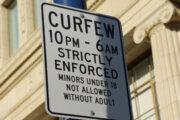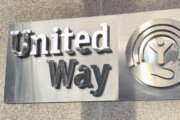You may have heard somewhere that student loans can’t be discharged in bankruptcy, but that’s a myth. While very difficult to do, it is possible, and you might consider this route if you have exhausted all other options and meet the criteria for discharge. Here’s what to know if you are wondering how to file bankruptcy on student loans.
First and foremost, if you’re feeling overwhelmed by student loan payments or having trouble making ends meet, it’s incredibly important to understand and use all your options to repay your student loan debt first. Filing for bankruptcy can have enormous long-term consequences on your ability to access credit and it can be costly, so it should only be used by individuals whose finances have completely collapsed and who have no other options.
[Read: How to Pay Off Student Loans.]
Read on for answers to common questions about this topic.
Should I File for Bankruptcy?
If you’re struggling to afford your student loan payment each month, you should first contact your loan servicer and ask about repayment plans and other options to keep your loans in good standing. Loan servicers handle the account management of your student loans, including billing and repayment, and are staffed with individuals who can help you find the right solution for your situation.
If you have private student loans, the terms of repayment will vary, but reaching out to your servicer is the best place to start.
Many borrowers in distress find misleading information online or fall victim to predatory companies that claim to provide debt relief, so it’s important to work directly with your student loan servicer for this type of assistance.
One option for federal student loan borrowers to avoid bankruptcy is enrolling in one of four income-driven repayment plans, which base the monthly payment on income and family size and could reduce that amount down to as low as $0.
[Read: What to Know About Federal Student Loan Repayment Options.]
Other options to avoid bankruptcy include deferment or forbearance, which are short-term solutions that allow you to temporarily stop making your federal student loan payments or reduce the amount that you pay each month. You may be eligible if you are experiencing financial difficulties, significant medical expenses, a change in employment or another type of hardship. And even if your federal student loans are already in default, you could look into loan rehabilitation and loan consolidation.
If you have tried all the options available to you and making payments on your student loans still prevents you from affording basic necessities, you should consult with an attorney who has experience with student loans in bankruptcy. Trusted organizations like the National Consumer Law Center can also be a good resource for information about bankruptcy proceedings and understanding your rights as a student loan borrower.
Can My Student Loans Be Discharged in Bankruptcy?
To successfully have your federal student loans discharged in bankruptcy, you will need to prove that repaying them would cause an “undue hardship.” There is no standard definition of undue hardship, and each situation is up to the discretion of each bankruptcy court. This can make it difficult to understand whether your loans would be discharged, but it also gives judges the flexibility to consider each individual situation when making a determination.
Most courts use a set of criteria known as the Brunner test to determine whether repaying student loans would cause an undue hardship. To pass the Brunner test, you must prove you meet the following three criteria:
1. Your income and expenses do not currently allow you to continue a basic or minimal standard of living for you and your dependents if you’re forced to repay your student loans.
2. This financial situation will, most likely, continue for a majority of your student loan repayment period.
3. You have made good faith efforts to try to repay your student loans before filing for bankruptcy.
[READ: How to Resolve a Student Loan Dispute.]
How Do I Start the Bankruptcy Filing Process and Get My Student Loans Discharged?
If you’ve thought carefully about the decision and have done your due diligence to exhaust all other options, you might consider moving forward with a bankruptcy filing. If this is the case, you would first need to decide which of two common options for consumer bankruptcy would be the best for your situation: Chapter 7 or Chapter 13. You should weigh the pros and cons of each when making your decision.
Chapter 7 is the most common type of bankruptcy filing. It requires the filer to liquidate assets, which means you will likely need to sell off a large portion of your property to satisfy part of what you owe to your debtors. Property can include land, your house, your car and even some of your retirement fund. This type of bankruptcy stays on your credit report for up to 10 years, making it difficult to access credit during that time.
Chapter 13 bankruptcy requires you to pay back a portion of your debt on a court-structured payment plan. It remains on your credit report for up to seven years, and you might not need to sell off any of your property to pay your debts.
You can start the process by filing for Chapter 7 or Chapter 13 bankruptcy. If you plan to seek a discharge of your federal student loans, there is a separate written complaint that needs to be filed, which will begin an additional lawsuit known as an “adversary proceeding.”
A judge will then consider your situation, likely using the Brunner test. If your request is granted, your federal student loans could be fully or partially discharged, or they could be recalculated with a lower interest rate.
Filing for bankruptcy is not easy and it has serious repercussions, but discharging your student loans through bankruptcy is possible if you meet the criteria. Because of the cost and serious long-term consequences, just make sure you have done your research and considered all other options before moving forward.
More from U.S. News
Update on Coronavirus Relief for Student Loan Borrowers
False Certification Discharge: What Student Loan Borrowers Should Know
Repayment Resources for Minority Student Loan Borrowers
Student Loans and Bankruptcy: What to Know originally appeared on usnews.com







